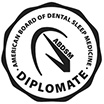
Dealing with a lower denture that refuses to stay in place can be a frustrating and uncomfortable experience. Whether you’re dining with friends or trying to hold a conversation, the constant worry of denture slippage can be exhausting. This can slowly wear away at your confidence and quality of life.
But how does it happen, and can you fix it? Read on to learn more about the causes of denture slippage and what you can do to treat it.
1. Changes in Jawbone Structure
Over time, the jawbone undergoes natural changes, including bone resorption, which can lead to a loss of volume and density. This gradual bone loss can affect the fit of your dentures, especially the lower ones, resulting in instability and movement.
2. Poor Denture Fit
A well-fitted denture is necessary for stability and comfort. If your lower denture is loose or ill-fitting, it may not provide adequate support or retention. Over time, this can lead to slippage during speaking or chewing. Changes in weight, aging, and denture wear and tear can all contribute to poor denture fit.
3. Dry Mouth
Saliva acts as a natural lubricant and creates suction, helping to hold dentures in place. However, dry mouth (xerostomia) or medications that reduce saliva production can reduce denture stability by decreasing the adhesiveness of saliva. Try to stay hydrated to improve this condition.
4. Lack of Muscle Control
The tongue and cheek muscles play an important role in stabilizing dentures, especially the lower ones. If these muscles are weak or lack coordination, they may struggle to keep the denture in place, leading to frequent slippage or falling out.
5. Denture Materials and Design
The design and quality of your dentures can also affect their stability. Lower dentures tend to be less stable than upper dentures by default due to differences in anatomy and muscle support. Additionally, poorly designed dentures or those made from inferior materials may worsen stability issues.
What Can I Do to Improve the Stability of My Dentures?
Here are some ways you can treat or improve the stability of your dentures:
- Denture Adhesives: Denture adhesives or creams can enhance denture retention. These products create a thin film between the denture and the gums, improving grip and stability.
- Dental Implants: Dental implants are surgically placed into the jawbone and act as anchors for the denture, holding them in place and increasing chewing strength.
- Adjustment or Replacement: If your dentures are significantly worn or no longer fit, you can have them adjusted or replaced by your dentist.
If you need help with your dentures, start by visiting your dentist. They can diagnose the reason for your loose dentures and work with you to address the underlying cause. This can allow you to improve the fit, comfort, and stability of your dentures so you can enjoy a confident and functional smile.
About the Practice
If you need an expert to help you with your dentures, you’ll find them at Indy Dental Group. Every location is furnished with state-of-the-art dental technology to make your treatment efficient, painless, and effective. Whatever your smile goals, their passionate dental professionals can help. Call (317) 846-6125 to schedule a denture consultation or visit the website to delve into their other services.


























